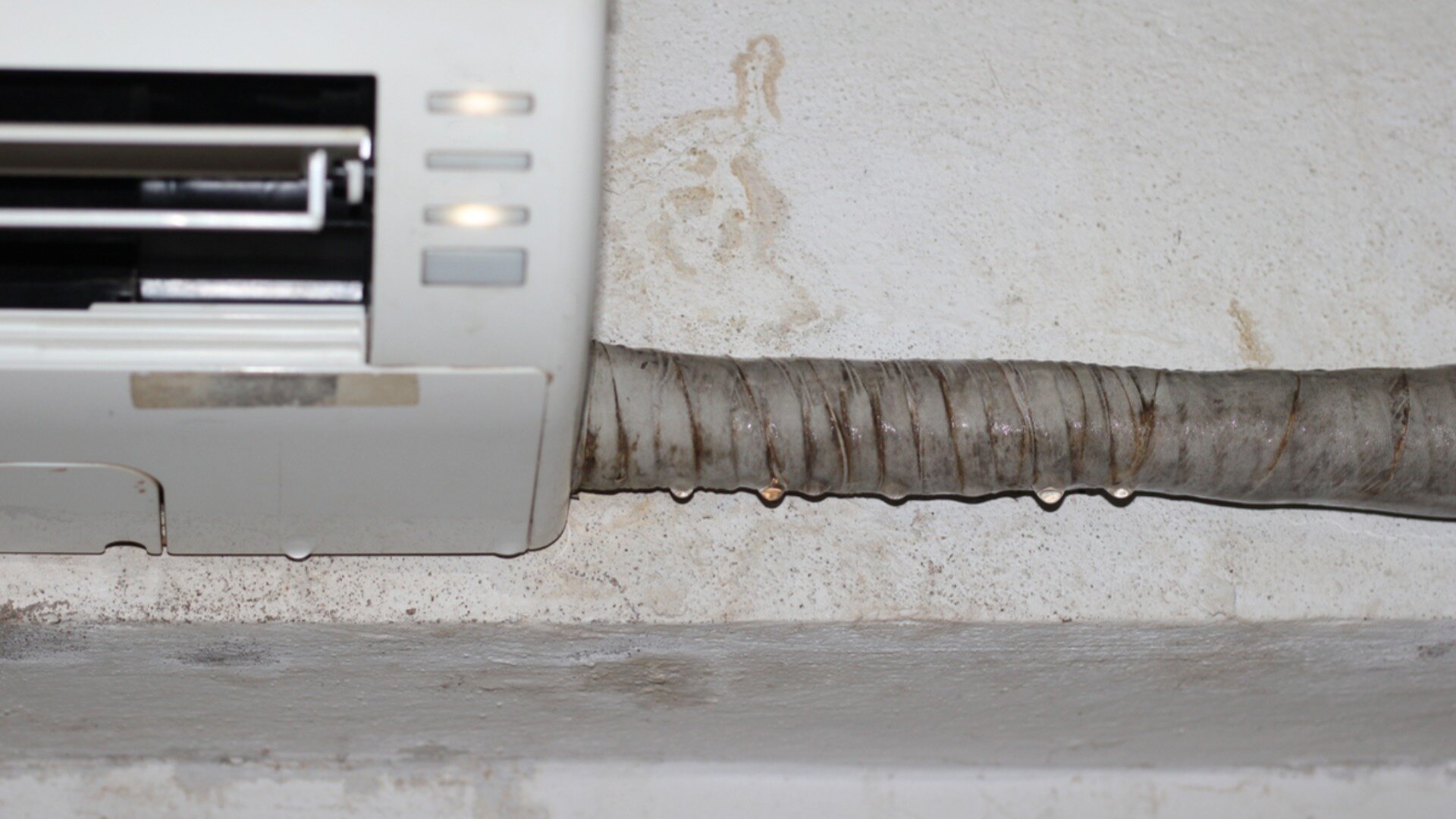
Noticing water pooling or dripping from your air conditioner can be concerning. But, rest assured, these leaks often have straightforward solutions. Common issues like condensation build-up, clogged drains, or loose parts can cause water to overflow from your air conditioner. Thankfully, fixing these problems is usually a simple DIY project, so there’s no need to panic.
Here’s a look at common reasons water might come from your AC vents or unit. We’ll share troubleshooting tips to help you pinpoint and fix the leak, whether it’s clearing drain lines or swapping out old parts or filters. Learn more about benefits of ducted air conditioning systems. Equipped with a few tools and some DIY know-how, you can stop your AC from dripping and keep your home protected from water damage. Read on to learn how!
Why is My Air Con Leaking
Leakage water in air conditioners can be caused by various issues that prevent proper drainage and moisture control. Identifying the specific source of the leak is the first step toward fixing the problem. Let’s explore the common culprits that lead to aircon dripping.
Condensation build-up
When an AC unit runs, it removes heat and humidity. This condensation usually drains away safely through designated drain lines. However, if too much moisture builds up and warm air, it can overflow the drain pan and leak from the vents or unit housing. This is one of the most common reasons for AC leakage.
Clogged drain lines
Clogged drain lines frequently cause air conditioner leaks. These lines redirect condensed water from the evaporator coil. When blocked by debris, algae, or mould, or if kinks occur, the water has no escape route and leaks. This issue is a very common reason for water leakage in air conditioners.
Drain pan leaks
Drain pan leaks are another major issue. The drain pan underneath the air conditioning system collects condensed water for drainage through the drain line. However, the pan’s cracks, holes, or rust can allow water to leak through before making it to the drain line. Faulty drain pans account for many leakage issues caused by leaking air conditioners.
Furthermore, a dirty air filter can restrict airflow over the evaporator coil, causing excess condensation that may overwhelm the drain system and result in water leaks.
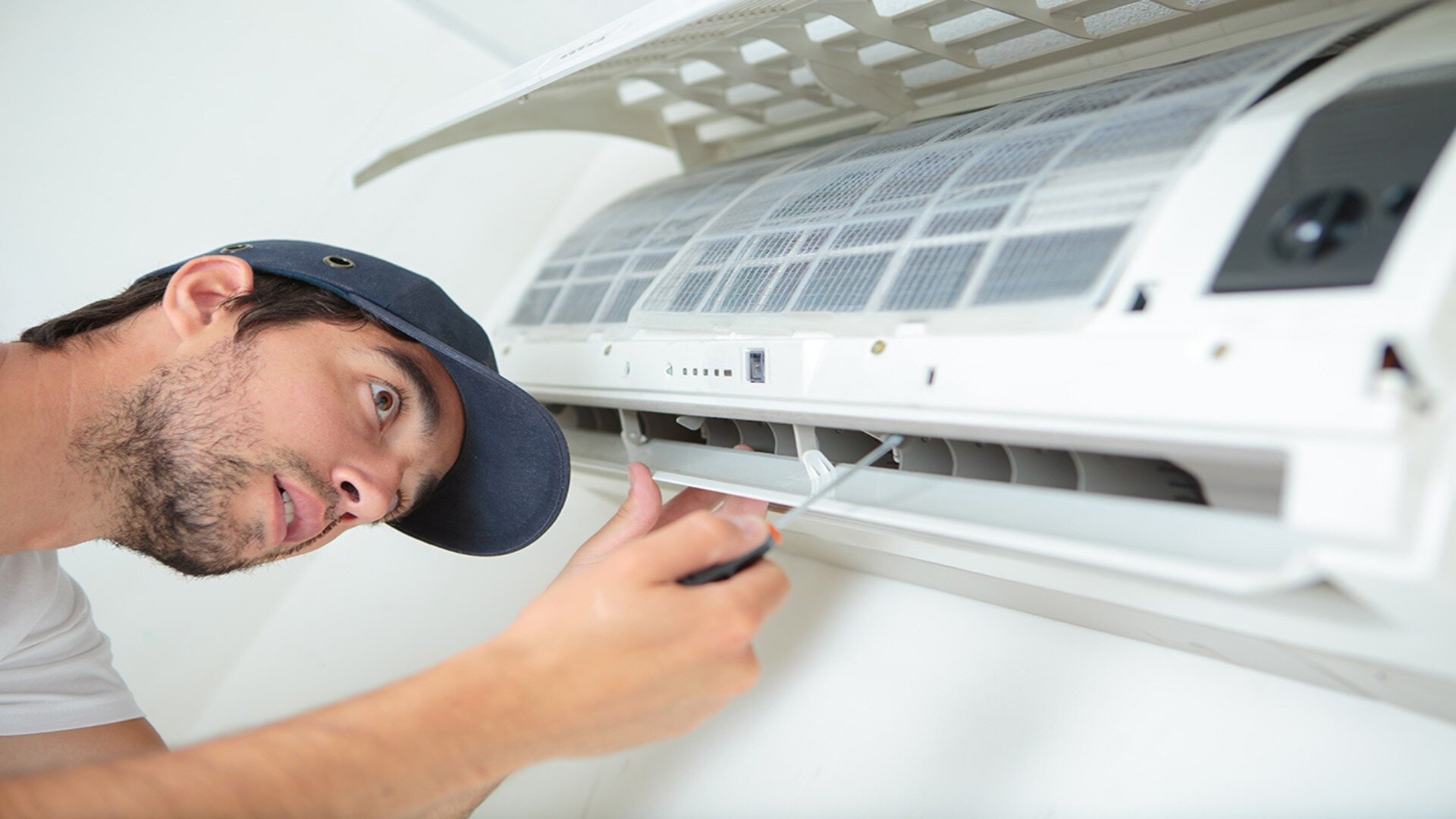
Refrigerant Leaks
If there is a leak in the refrigerant lines, the loss of refrigerant can cause the evaporator coils to freeze. As the ice melts off the coils, it leads to leaking water issues from the aircon unit. Professional air conditioning services are needed to repair refrigerant leaks properly.
Improper Installation
Suppose the outdoor AC unit is not levelled adequately or the drain pipe is not sloped correctly during installation. In that case, it can disrupt proper water drainage and leak from the leaking air conditioning system. Improper installation is an underlying cause that should be addressed.
Old or Worn Out Parts
Over time, gaskets, broken condensate pumps, pipes, and drain pans wear out. Cracks and holes develop, allowing condensate water to leak and preventing the cool air from being distributed effectively. Replacing these damaged parts may be needed to stop the leaking water issues.
Signs Your Air Conditioner Is Dripping Water
Puddles or Water Stains
The most obvious red flag is the presence of actual water pooling around the AC vents, unit, or surrounding floor. Pay attention to any puddles, drips, or water stains near your air conditioner. This signals that condensate is overflowing somewhere due to a clogged drain line, damaged drain pan, or other issue with the condensate drain line.
Leaking Air from Vents
If you notice water visibly leaking from the air conditioning vents, that signifies a drainage problem. Condensation build-up is overflowing inside the AC system and being expelled into the room along with the airflow, caused by issues like a refrigerant leak where ice melts and drips water.
Moisture or Mold Growth
Another warning sign is excessive moisture or mould growth around the indoor air handler or outdoor unit. This dampness results from water leaking and not draining correctly, potentially due to an air leak or clogged condensate line.
Musty Odors
Detecting musty, mildew-like odours from your air conditioning system could indicate water leaking and pooling somewhere, creating an environment for mould and bacteria growth.
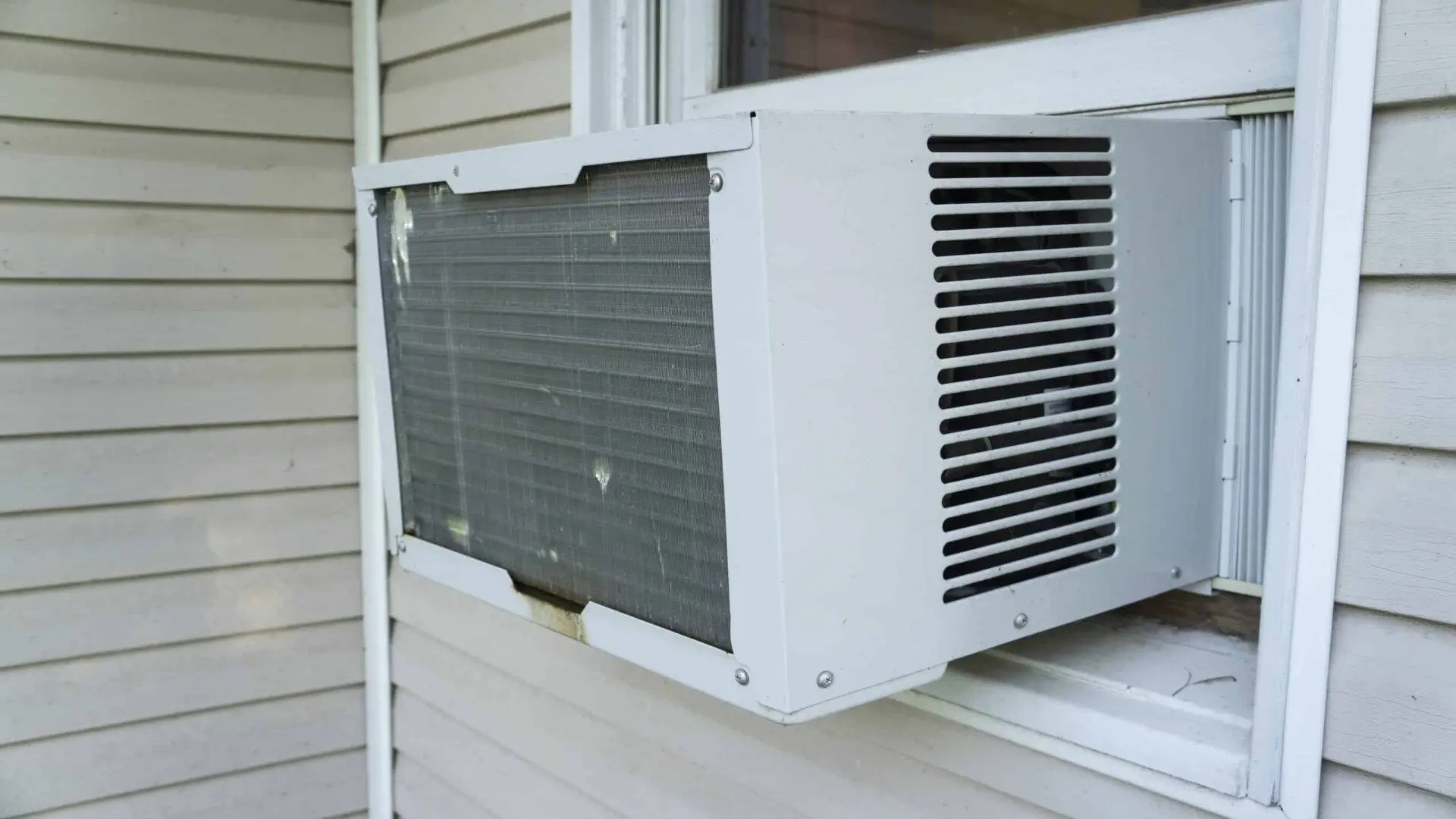
Excess humidity in the home
If the AC is running continuously but not lowering indoor humidity, dripping condensate may reduce its dehumidifying capacity. Clogged drains can force water to back up inside the unit rather than draining correctly.
Reduced cooling efficiency
A leaky AC system has to work harder to remove humidity, which lowers its cooling effect. Excessive condensation could limit performance if your energy bills and cooling times increase.
By keeping an eye out for these leakage indicators, you can promptly address and fix the issue. Stay alert to warning signs of an AC unit dripping water.
Checking Areas Prone to AC Leaks
When trying to diagnose the source of an air conditioner water leak, there are a few key areas to inspect. Start by checking the drain line and pan underneath the indoor evaporator coil, as clogged drains and cracked pans are common culprits.
Trace the drain line to see if it has kinks, clogs from algae or debris, or separation of the fittings. Then, examine the drain pan for deterioration, rust holes, or visible water.
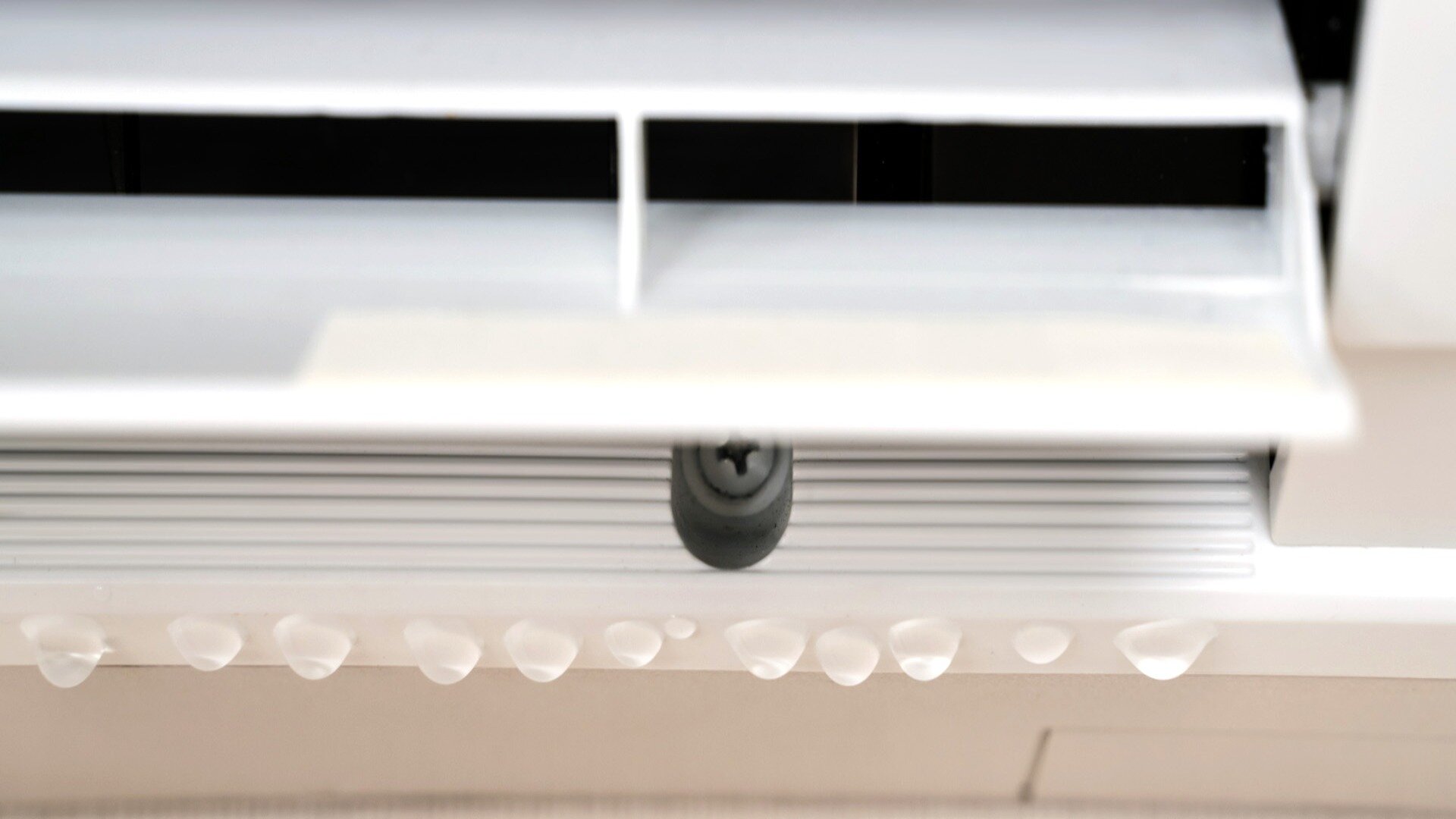
Leaks may also stem from a problem with the refrigerant lines or coil, so inspect the connections for loose fittings or ice build-up, indicating a refrigerant issue. The base pan of the outdoor condenser of air conditioners should also be checked for levelness and cracks that could lead to water spillover.
Inspecting the drain line, drain pan, coils, and basepan will help pinpoint where the air conditioner’s condensate leaks to address the root issue.
D.I.Y. Steps to Fix an AC Water Leak
You can often fix a leaky air conditioner with some simple maintenance and repairs. Use a wet or dry shop vacuum to clean out any algae, mould, or debris build-up in the drain pipe.
Check all PVC drain fittings for cracks and reconnect any parts that have become disconnected. If the drain pan is cracked, replace it with a new plastic pan of the same size. Tighten hose clamps and straighten any kinks in condensate hoses.
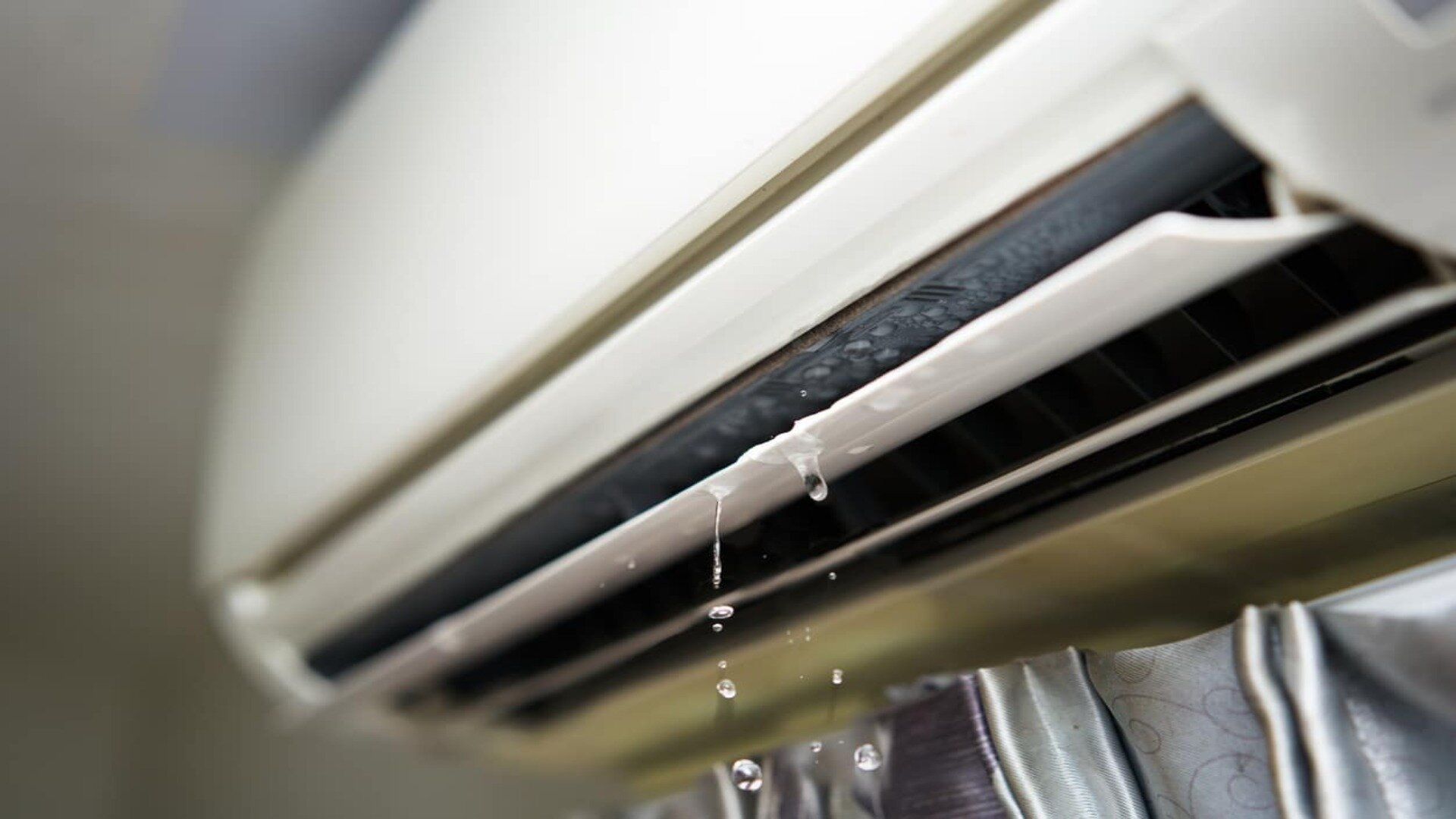
Refrigerant works to turn the warm air from your room into cool air. If you see a layer of ice on the evaporator coil inside the indoor unit, you should be concerned and stop using the air conditioner immediately. If the refrigerant lines are leaking, have them resealed by an HVAC technician to prevent loss of refrigerant. Adjusting the unit’s level or placing a shim can also help water properly drain out.
Installing a cleanout plug makes clearing future clogs easy. Basic mechanical skills and proper precautions when working with electrical systems can fix many minor AC leaks with DIY troubleshooting.
Preventing Future Air Conditioner Leaks
A diligent maintenance routine prevents your air conditioner from leaking water. Regular aircon service is key to ensuring efficient service and prolonging the life of your cooling system. Here are steps to incorporate into your maintenance routine:
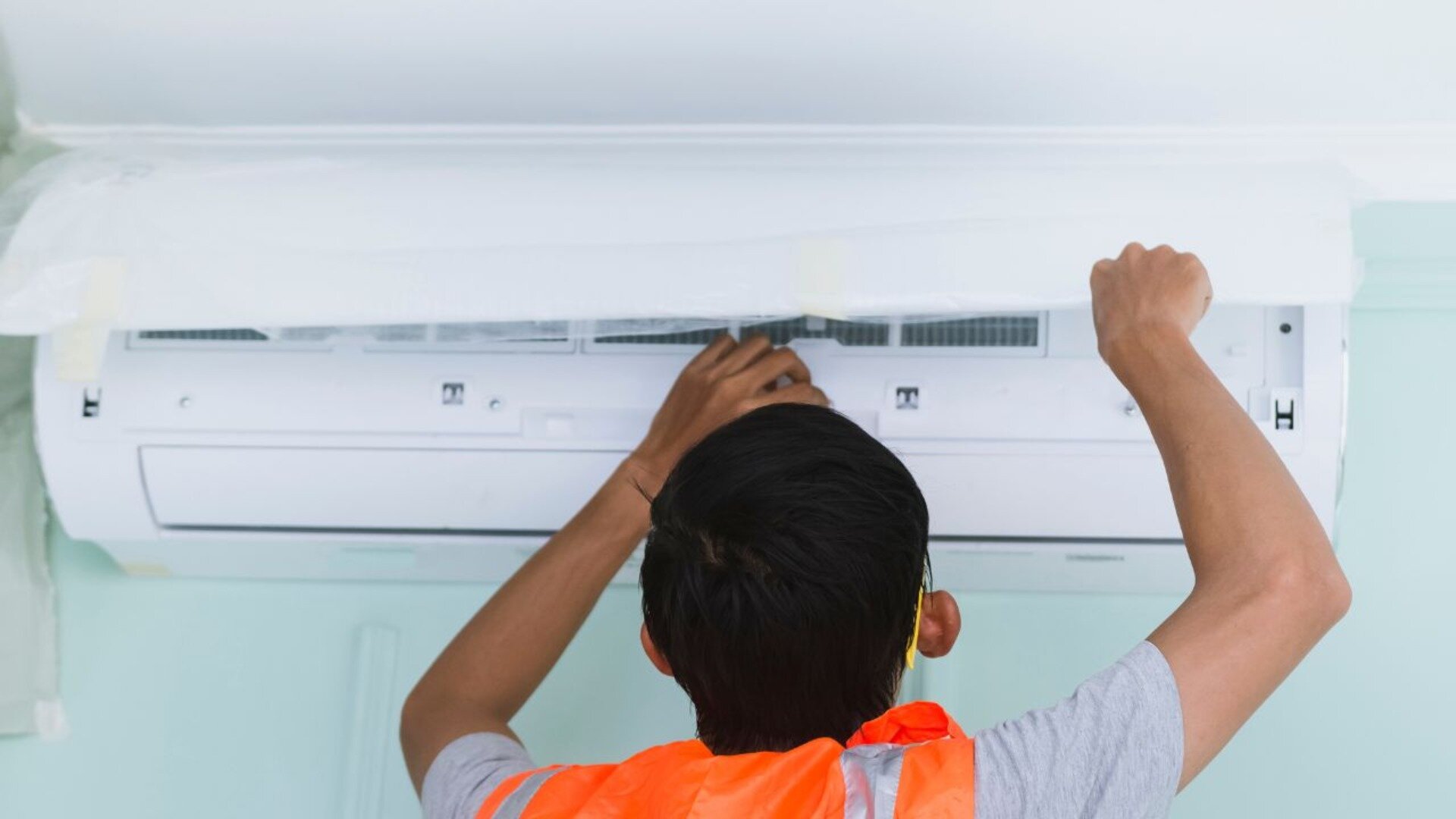
- Monthly Air Filter Replacement: Change the air filter monthly to prevent system blockages and maintain air quality. This simple step helps keep the drain lines clear, ensuring efficient service.
- Annual Inspections: Before the cooling season begins, inspect the drain pan, lines, and base pan of the outdoor unit. Look for any signs of cracks or deterioration that could cause leaks.
- Use of Drain Cleaners: Regularly use drain cleaners or antimicrobial tablets to keep the condensate lines free from algae and build-up. This maintains the efficiency of your aircon service.
- Professional HVAC Technician Visits: Hire an HVAC technician annually to check refrigerant levels and reseal any small leaks. This is a part of the excellent service needed to ensure your system functions optimally. Technicians can also fix quick-connect fittings that are prone to disconnection.
- Insulation of Condensate Lines: Properly insulate all condensate lines to reduce the chances of dripping and enhance your system’s efficiency.
- Clear Surrounding Area: Keep plants and debris away from the outdoor unit area to avoid obstructions and potential damage.
- Replacement of Worn Parts: Replace worn-out drain pans or other parts as needed to maintain the quality of service and prevent future leaks.
By following these steps and ensuring regular, quality air conditioning service, you can minimize AC leaks and enjoy lasting, efficient cooling system operation.
Get Back to Cooling Comfort
Air conditioner water leaks are often caused by condensate drainage issues, such as clogged lines or drain pan cracks. Inspecting critical areas like the drain line, pan, and coils can typically diagnose the leak’s source.
Standard air conditioning unit leaks can be fixed with simple DIY troubleshooting, like clearing lines and tightening fittings. For major repairs, rely on a trained HVAC technician. Preventative maintenance is crucial to avoid future leakage problems.
If you need professional assistance diagnosing or repairing a leaky air conditioner, contact the experts at Enersol Electrical. Our skilled technicians service all makes and models of cooling systems.
We can identify the source of the leak, make any necessary repairs, and get your AC running optimally again this cooling season. Don’t tolerate inefficiency and water damage - call Enersol Electrical today to stop AC water leaks!